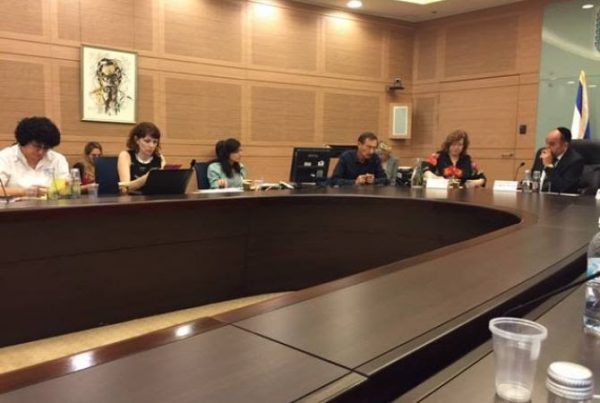The Israeli Parliamentary (Knesset) Committee of Education, Culture, and Sports announced on August 1 that it recognized the Armenian Genocide and urged the government to formally acknowledge the crime as such, Armenian weekly reports.
“It is our moral obligation to recognize the Armenian genocide,” said committee chair Yakov Margi at a committee meeting, reported the Times of Israel. During the meeting, Margi criticized the fact that the State of Israel does not currently recognize the 1915 genocide and urged Knesset Speaker Yuli Edelstein to officially do so.
Edelstein urged Israel to recognize the genocide in early July. “We must not ignore, belittle or deny this terrible genocide,” Edelstein said as the Knesset discussed the possibility of recognizing the genocide. “We must disconnect the current interests, bound to this time and place, from the difficult past, of which this dark chapter is a part,” he added.
Georgette Avakian, chairwoman of the Armenian National Committee (ANC) of Jerusalem, said that after 101 years, the time has come for the Knesset to join parliaments around the world and the 31 countries who have already recognized the Armenian Genocide. “The Knesset and the President of the State must recognize the genocide of our nation,” she said.
Read also
Israel’s president, Reuven Rivlin was a staunch supporter of Armenian Genocide recognition while he was Chairman of the Knesset. At the January 2015 United Nations (UN) General Assembly’s Holocaust memorial, Rivlin recognized the Armenian Genocide while he was defending Israel against what he called “cynical” accusations of genocide and war crimes in his country’s dealing with Palestinians.
“In 1915, the days of the Armenian Genocide, Avshalom Feinberg of the NILI underground [A Jewish spy network in Ottoman Palestine] wrote the following: ‘My teeth have been worn away by anger, who is next? I have walked on sacred and holy ground, on the road to Jerusalem, and asked myself if it is this time that we live in—1915–or in the days of Titus or Nebuchadnezzar? And I asked myself whether I may cry for the hurt of the daughter of my people alone and if Jeremiah did not shed his tears of blood also for the Armenians,” said Rivlin at the memorial.






















































